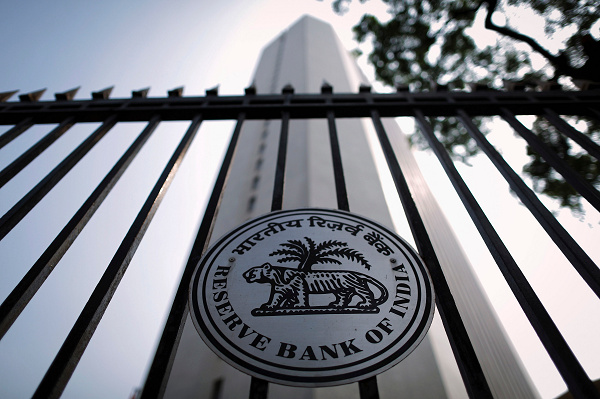
by Editor | May 25, 2021 | Banking, Economy, Markets, News
 By Porisma P. Gogoi,
By Porisma P. Gogoi,
Mumbai : The Indian equity market, which will resume trade on Monday after a four-day-long break, will track domestic events like the central bank’s first bi-monthly monetary policy review for the 2018-19 financial year, along with the release of macro-economic and automobile sales data, for direction in the upcoming week.
Along with domestic factors, global market sentiment, as well as crude oil prices and the course of foreign and domestic funds are also expected to influence investors’ risk-taking appetite during the week ahead.
“Next week will be the commencement of the new financial year after the long weekend and markets would look forward to the PMI (Purchasing Managers’ Index) numbers. The Reserve Bank of India (RBI) monetary policy committee meeting is scheduled on Thursday,” Devendra Nevgi, Founder and Principal Partner, Delta Global Partners, told IANS.
According to Nevgi, markets are not expecting any action from RBI in terms of changes in policy rate, but the language would be scrutinised closely to ascertain its stance.
Macro-data scheduled to be released next week include the Nikkei India PMI data for the manufacturing sector on Monday and for services sector on Wednesday.
“The response of banks to the commencement of India’s borrowing programme remains the key for interest rates. The global sentiments, especially towards technology stocks in the US, remain important. The fall in interest rates in the US (10 year) as well as in India should help the sentiment,” he added.
Last week, the Central government’s decision to borrow only Rs 2.88 lakh crore through its benchmark bond scheme in the first half of FY19 — 47.5 per cent of the total budgeted amount — as against 60-65 per cent share in this period in previous years, had lifted investors’ sentiments.
Also, positive global cues on the back of trade war fears easing between major world economies had pulled the key Indian equity indices from their five-month lows to close with substantial gains.
On a weekly basis, the barometer 30-scrip Sensitive Index (Sensex) of the Bombay Stock Exchange (BSE) closed at 32,968.68 points — gaining 372.14 points or 1.14 per cent — while the wider Nifty50 of the National Stock Exchange (NSE) closed trade at 10,113.70 points — up 115.65 points or 1.16 per cent from its previous week’s close.
D.K. Aggarwal, Chairman and Managing Director of SMC Investments and Advisors, said that, apart from the outcome of the RBI monetary policy meet and macro-economic data, the trend in the global markets will also set the course for the domestic bourses next week.
“The trend in the global markets, investment by foreign portfolio investors (FPIs) and domestic institutional investors (DIIs), the movement of the rupee against the dollar and crude oil price movement will dictate the trend of the market,” Aggarwal told IANS.
Last week, the Indian rupee weakened by 17 paise to close at 65.18 against the US dollar from its previous week’s close at 65.01.
Provisional figures from the stock exchanges showed that foreign institutional investors (FIIs) sold scrips worth Rs 868.62 crore, while the DIIs purchased stocks worth Rs 6,151.53 crore during the truncated trade week.
Figures from the National Securities Depository revealed that FPIs invested in equities worth Rs 3,214.27 crore, or $494.08 million, during March 26-28.
In the upcoming week, initial sentiments in market trading will be driven by global clues and the on-going ICICI Bank crisis, said Gaurav Jain, Director at Hem Securities.
“Eventually, all focus will shift to the RBI policy. We will also see some stock-specific action on account of a rejig in the Nifty50 index. Bajaj Finserv, Grasim Industries and Titan Company will replace Ambuja Cements, Aurobindo Pharma and Bosch in the Nifty50 index from Monday,” said Jain.
“Beside the RBI policy, auto stocks will be in focus as the auto companies start announcing monthly sales numbers for March 2018 starting from April 1,” he added.
Deepak Jasani, Head of Retail Research for HDFC Securities, maintained that on technical levels, the Nifty50 remained in a downtrend for the week ahead.
“Technically, the Nifty remains in downtrend and further downsides are likely early next week once the immediate support of 9,958 is broken,” Jasani told IANS.
“Immediate resistance is now at 10,228,” he added.
(Porisma P. Gogoi can be contacted at porisma.g@ians.in)
—IANS
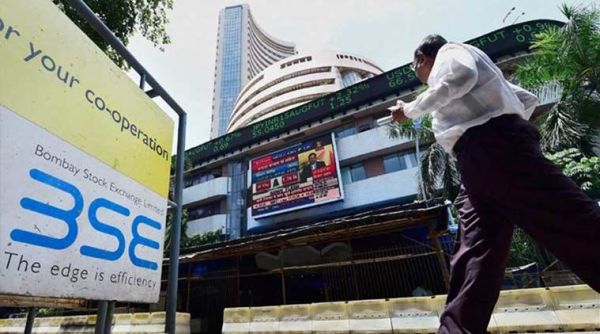
by Editor | May 25, 2021 | Economy, Markets, News
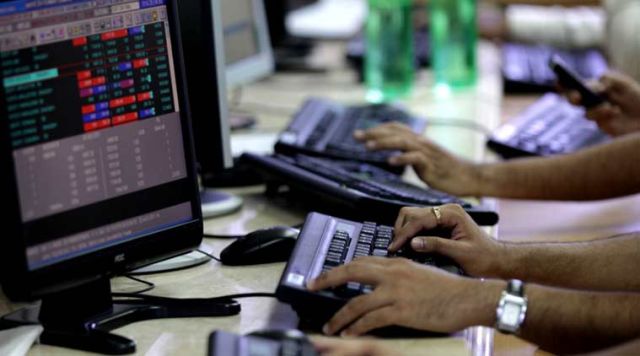 By Rohit Vaid,
By Rohit Vaid,
Mumbai : Fears over the imposition of more trade protectionist measures, along with a parliamentary deadlock may flare up further volatility in the domestic equity market in the coming truncated trade week.
Besides, triggers such as higher crude oil prices, derivatives expiry and the upcoming macro-economic data points are expected to influence investors’ sentiments.
“Markets next week would continue to be volatile guided by global developments on the ongoing trade issues between the US and China as well as the local political developments, especially the outcome of Rajya Sabha polls,” Devendra Nevgi, Founder and Principal Partner, Delta Global Partners, told IANS.
“Oil prices (Brent) have hit $70, adding to the risk aversion in India.”
Last week, economic tensions between the world’s two largest economies escalated after the US imposed tariffs on Chinese products and China announced plans for a retaliatory action.
“Market is expected to continue its volatile trade going forward and investors will continue to keep close eye on further actions by Donald Trump and the reaction of the Chinese government,” said D.K. Aggarwal, Chairman and Managing Director of SMC Investments & Advisors.
“Besides, global macroeconomic data releases, the movement of rupee against the dollar, crude oil price movement, investment by FPIs (foreign portfolio investors) and DIIs (domestic institutional investors) will continue to give direction to the markets.”
In addition, parliamentary proceedings, macro-economic points like Index of Eight Core Industries (ECI) figures, along with the country’s fiscal deficit numbers up to February and its external debt data will be keenly watched by investors.
“The fiscal deficit number for February to be declared on the coming Wednesday (March 28) will be closely watched for slippages,” Nevgi said.
According to Vinod Nair Head of Research at Geojit Financial Services, apart from weak global cues, domestic market “is underperforming” due to premium valuation, profit booking led by LTCG (long-term capital gains) tax and pre-election political uncertainties.
“We can expect this domestic chaos to stabilise by the end of FY18, as redemption pressure will be over. But due to risk of escalation in global trade war and domestic pre-election uncertainties, volatility may continue for some more time,” Nair said.
“The week ahead is truncated with two market holidays and F&O expiry adding volatility.”
Investment-wise, provisional figures from the stock exchanges showed that last week, foreign institutional investors purchased scrip worth Rs 2,524.13 crore and the DIIs invested Rs 211.91 crore in equities.
The National Securities Depository (NSDL) revealed that FPIs invested Rs 2,060.04 crore, or $316.99 million in equities during March 19-23.
On the currency front, the rupee weakened by eight paise to close at 65.01 against the US dollar from its previous week’s close at 64.93.
Technical charts showed a bearish outlook for the National Stock Exchange’s (NSE) Nifty.
“The Nifty remains in downtrend and further downsides are likely early next week once the immediate supports of 9,952 points are broken,” said Deepak Jasani, Head of Retail Research for HDFC Securities.
“Immediate resistance is now at 10,227 points.”
The key Indian equity indices — the BSE Sensex and the NSE Nifty50 — closed last week at 5-month low levels on the back of trade protectionist measures, apart from the ongoing turmoil in the domestic banking system as well as the uncertainty on the political situation in the country.
Consequently, the 30-scrip Sensitive Index (Sensex) of the BSE shed 579.46 points or 1.75 per cent to 32,596.54 points — its lowest closing level since October 23, 2017.
Similarly, the Nifty50 of the NSE edged lower. It ended below the psychologically important 10,000-mark level and closed last week’s trade at 9,998.05 points — down 197.1 points or 1.93 per cent — its lowest closing level since October 11, 2017.
The Indian equity markets will be closed on Thursday and Friday on account of Mahavir Jayanti (March 29) and Good Friday (March 30), respectively.
(Rohit Vaid can be contacted at rohit.v@ians.in)
—IANS
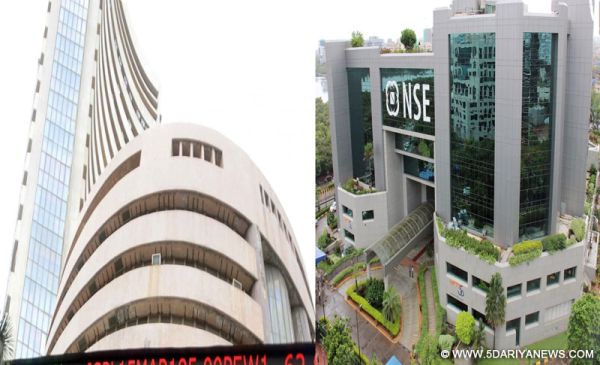
by Editor | May 25, 2021 | Economy, Markets, News
 By Rohit Vaid,
By Rohit Vaid,
Mumbai : Volatility may persist in the key Indian equity indices, as global cues — prospects of trade wars, rise in US interest rates — and fears of domestic political instability are expected to dent investors’ risk-taking appetite, market observers opined.
“Markets would continue to face headwinds from the evolving political scenario domestically and the prospects of a trade war globally,” Devendra Nevgi, Founder and Principal Partner, Delta Global Partners, told IANS.
“Mixed macros data (points), fiscal year-end issues, higher IPO supply will keep the markets capped and range-bound, with lower bias.”
According to Vinod Nair, Head of Research at Geojit Financial Services: “The long-term outlook for the domestic market continues to be strong. However, rising concerns of global trade headwinds, domestic NPA issues and upcoming state elections will keep the market in tenterhooks.”
“Currently, the market is finding it difficult to stay float at support levels as volatility in global market brought the benchmark indices towards the 200 DMA. US Fed policy meet next week is the key event and the market expects a 0.25 basis points hike.”
Besides US Fed’s meet from March 20-21, investors are expected to keep a close watch on the direction of foreign fund flows and the rupee’s movement against the US dollar.
“Last week, news of the BJP’s defeat in by-polls increased the political risk premium on the rupee. We are in a pre-election year, where every regional electoral event will be seen through the lens of 2019,” Anindya Banerjee, Deputy Vice President for Currency and Interest Rates with Kotak Securities, told IANS.
“Over the next week, the most important economic event remains the US Fed’s decision on monetary policy. We expect a 25 basis points hike and a hawkish tone, which can be positive for the US dollar. As a result, USD-INR may witness a rally towards 65.30 levels on spot. We expect a broad range of 64.80 and 65.30 levels on spot.”
Last week, the rupee strengthened by 24 paise to close at 64.93 against the US dollar from its previous week’s close at 65.17.
On the investment front, provisional figures from the stock exchanges showed that foreign institutional investors (FIIs) purchased scrips worth Rs 6,288.23 crore and the domestic institutional investors (DIIs) worth Rs 202.69 crore during the week.
Figures from the National Securities Depository (NSDL) revealed that foreign portfolio investors (FPIs) invested Rs 6,713.73 crore, or $324.81 million, during March 12-16.
On technical levels, the National Stock Exchange’s (NSE) Nifty50 remains in downtrend.
“Technically, the Nifty remains in downtrend and further downsides are likely early next week once the immediate supports of 10,141 points are broken,” said Deepak Jasani, Head of Retail Research for HDFC Securities.
“Immediate resistance is now at 10,405 points.”
Last week, the key Indian equity indices — the Bombay Stock Exchange (BSE) Sensex and the NSE Nifty50 — receded on the back of political instability, along with the ongoing turmoil in the banking sector and weak global cues.
Consequently, the barometer 30-scrip Sensitive Index (Sensex) slipped by 131.14 points or 0.39 per cent to close at 33,176 points.
Similarly, the wider Nifty50 of the NSE closed the week’s trade at 10,195.15 points — down 31.7 points or 0.31 per cent from its previous week’s close.
(Rohit Vaid can be contacted at rohit.v@ians.in)
—IANS
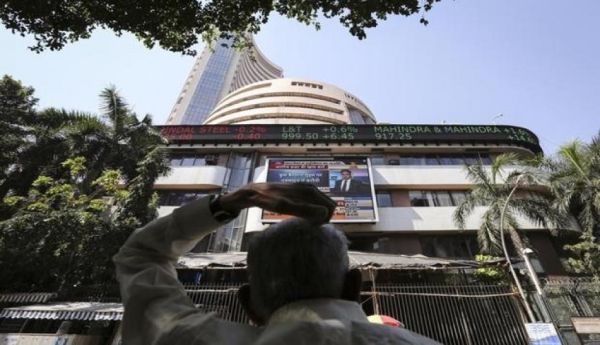
by Editor | May 25, 2021 | Economy, Markets, News
 By Porisma P. Gogoi,
By Porisma P. Gogoi,
Mumbai : The Indian stock markets during the upcoming week are expected to take directions from domestic macro-economic data points slated to be released from March 12 onwards.
Apart from the data, developments on the global trade front, along with the direction of foreign funds, will also determine the course of key Indian equity indices, said market observers.
“Market participants will keep a close eye on domestic macro-economic data releases. The government will announce inflation data based on consumer price index (CPI) for February and industrial production data (Index of Industrial Production, IIP) for January on March 12,” D.K. Aggarwal, Chairman and Managing Director of SMC Investments and Advisors, told IANS.
“Besides, global macro-economic data, developments in the Budget session of Parliament, trends in global markets, investment by foreign portfolio investors (FPIs) and domestic institutional investors (DIIs) will continue to dictate the trend on the bourses next week,” he said.
During March 5-9, figures from the National Securities Depository (NSDL) revealed that FPIs invested in equities worth Rs 1,384.36 crore, or $212.98 million.
Provisional figures from the stock exchanges showed that foreign institutional investors (FIIs) sold-off scrips worth Rs 280.74 crore, while DIIs purchased scrips worth Rs 131.07 crore during last week.
On technical levels, if the NSE Nifty50 trades and closes above the 10,288-level in the upcoming week, then it is likely to test 10,375 to 10,463-10,565 levels, as per Arpit Jain, Assistant Vice President at Arihant Capital Markets.
“However, if the Nifty trades and closes below 10,165 level, then it can test 10,077 to 9,990-9,888 levels,” Jain told IANS.
“Broadly, the weekly trend is down, hence at higher levels, we are likely to witness selling pressure,” he added.
Last week, the Indian equity markets were engulfed by bears as global trade war fears following US President Donald Trump’s proposal to impose tariff on import of metals, along with the turmoil in the domestic banking sector, continued to erode the risk-taking appetite of investors.
On a weekly basis, the barometer 30-scrip Sensitive Index (Sensex) of the BSE shed 739.8 points or 2.17 per cent to close at 33,307.14 points.
The wider Nifty50 of the National Stock Exchange (NSE) closed trade at 10,226.85 points — down 231.5 points or 2.21 per cent from its previous week’s close.
“With global uncertainty over the US trade war and its reaction, all eyes are also on the proposed meeting of North Korean Leader Kim Jong Un and President Trump in the coming months,” Dhruv Desai, Director and Chief Operating Officer of Tradebulls, told IANS.
According to Vinod Nair, Head Of Research at Geojit Financial Services, absence of major triggers to maintain the upward trend is keeping investors on the sidelines.
“Though the long-term outlook for the domestic economy continues to be strong, issues like global trade headwinds, NPA (non-performing assets) issues and US Federal Reserve’s rate-hike trajectory are adding volatility to the market,” said Nair.
“Market participants are cautiously awaiting the CPI and IIP data next week. Inflation is expected to come down to 4.74 per cent in February which will ease bond yield in the near term. IIP is expected to show some moderation,” he added.
(Porisma P. Gogoi can be contacted at porisma.g@ians.in )
—IANS

by Editor | May 25, 2021 | Economy, Markets, News
 By Rohit Vaid,
By Rohit Vaid,
Mumbai : Further economic reforms expected from the second-half of the Budget session and volatility in global stock markets will influence the trajectory of the key Indian equity indices next week, opined analysts.
Further, market observers pointed out that crude oil price fluctuations, combined with the stress being faced by the banking sector, direction of foreign fund flows and the rupee’s movement against the US dollar, will also impact investors’ risk-taking appetite.
“Next week, markets would closely track the movement in the banking index, especially the PSU bank stocks, for any recovery — and capital goods stocks,” Devendra Nevgi, Founder and Principal Partner, Delta Global Partners, told IANS.
“The global market sentiment and FPI (Foreign Portfolio Investors) flows would be closely watched, as, in the month of February, FPIs were net sellers to the tune of Rs 18,619 crore.”
“The DII (Domestic Institutional Investors) support remains crucial for markets. (February net purchases of Rs 17,813 crore.)”
According to Vinod Nair, Head of Research, Geojit Financial Services, the long-term outlook for the economy “continues to be strong, while valuation for the market is still high”.
“Prevailing volatility in the market is due to concerns on inflation, rise in 10-year bond yield and US Federal Reserve’s rate hike trajectory,” he said.
Besides global cues, investors are expected to keep a close watch on the upcoming macro-economic data point — the Nikkei India Composite PMI Output Index — and the rupee’s movement against the US dollar.
On the currency front, the rupee weakened by 96 paise to close at 65.17 against the US dollar for the week ended March 1.
“News of BJP doing well in the assembly polls in three key North East states augurs well for political stability. We are in a pre-election year, where every small and large victory will get bigger than usual importance. As a result, we expect the rupee to strengthen towards 65 levels during the first half of the week,” Anindya Banerjee, Deputy Vice President for Currency and Interest Rates with Kotak Securities, told IANS.
“Weakness in the US dollar, post Trump’s announcement on trade tariffs, should add momentum to the long rupee trade. On USD-INR, we are expecting a range of 64.70 to 65.30 levels on spot.”
On technical levels, the underlying short-term trend of the National Stock Exchange’s (NSE) Nifty50 remains bearish.
“Technically, with the Nifty resuming its short-term downtrend after a minor pullback witnessed last week, the underlying trend remains down,” said Deepak Jasani, Head of Retail Research for HDFC Securities.
“Further downsides are likely once the immediate supports of 10,422 points are broken.”
Last week, despite better-than-expected macro-economic growth indicators, the key Indian equity indices closed the week on a flat-to-negative note as global cues and the stress faced by the banking sector, eroded investors’ risk-taking appetite.
However, a minor pullback rally led by healthy GDP growth data for the third quarter of 2017-18 helped pare some losses in the truncated week that ended Thursday, with Holi being celebrated on Friday.
Consequently, on a weekly basis, the barometer 30-scrip Sensitive Index (Sensex) of the Bombay Stock Exchange (BSE) declined by 95.21 points or 0.28 per cent to close at 34,046.94 points.
Similarly, the wider Nifty50 of the NSE closed slightly in the red. It closed at 10,458.35 points — down by just 32.7 points or 0.31 per cent from its previous week’s close.
(Rohit Vaid can be contacted at rohit.v@ians.in)
—IANS






